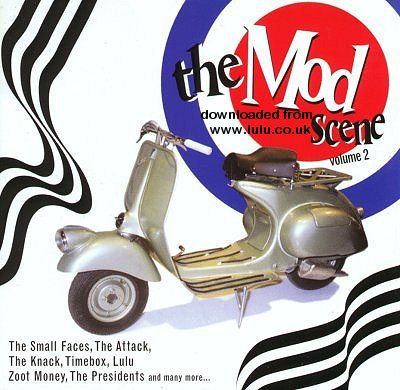Mod scene
Monday 7 December 2015
Friday 4 December 2015

The film, set in 1964, follows the story of Jimmy Cooper (Phil Daniels), a London Mod. Disillusioned by his parents and a job as a post room boy in an advertising firm, Jimmy finds an outlet for his teenage angst with his Mod friends Dave (Mark Wingett), Chalky (Philip Davis) and Spider (Gary Shail). One of the Mods' rivals, the Rockers, is in fact Jimmy's childhood friend, Kevin (Ray Winstone). An assault by aggressive Rockers on Spider leads to a retaliation attack on Kevin. Jimmy participates in the assault, but when he realises the victim is Kevin, he doesn't help him, instead driving away on his scooter.
A bank holiday weekend provides the excuse for the rivalry between Mods and Rockers to come to a head, as they both descend upon the seaside town of Brighton. A series of running battles ensues. As the police close in on the rioters, Jimmy escapes down an alleyway with Steph (Leslie Ash) – a girl on whom he has a crush – and they have sex. When the pair emerge, they find themselves in the middle of the melee just as police are detaining rioters. Jimmy is arrested, detained with a violent, charismatic Mod he calls 'Ace Face' (Sting), and later fined the then-large sum of £50. When fined £75, Ace Face mocks the magistrate by offering to pay on the spot with a cheque, to the amusement of fellow Mods.
Back in London, Jimmy becomes increasingly depressed. He is thrown out of his house by his mother, who finds his stash of amphetamine pills. He then quits his job, spends his severance package on more pills, and finds out that Steph has become the girlfriend of his friend Dave. After a brief fight with Dave, the following morning his rejection is confirmed by Steph and with his beloved Lambretta scooter accidentally destroyed, Jimmy takes a train back to Brighton. In an attempt to relive the recent excitement, he revisits the scenes of the riots and of his encounter with Steph. To his horror, Jimmy discovers that his idol, Ace Face, is in reality a lowly bellboy at a Brighton hotel. Jimmy steals Ace's scooter and heads out to Beachy Head, crashing the scooter over a cliff, which is where the film begins with Jimmy walking back from the cliff top in the sunset back
Northern soul
Northern soul is a music and dance movement that emerged independently in Northern England, the English Midlands, Scotland and Wales[1] in the late 1960s from the British mod scene. Northern soul mainly consists of a particular style of black American soul music based on the heavy beat and fast tempo of the mid-1960s Tamla Motown sound.
The northern soul movement, however, generally eschews Motown or Motown-influenced music that has had significant mainstream commercial success. The recordings most prized by enthusiasts of the genre are usually by lesser-known artists, released only in limited numbers, often by small regional American labels such as Ric-Tic and Golden World Records (Detroit), Mirwood (Los Angeles) and Shout and Okeh (New York/Chicago).
Northern soul is associated with particular dance styles and fashions that grew out of the underground rhythm & soul scene of the late 1960s at venues such as the Twisted Wheel in Manchester. This scene and the associated dances and fashions quickly spread to other UK dancehalls and nightclubs like the Chateau Impney (Droitwich), Catacombs (Wolverhampton), the Highland Rooms at Blackpool Mecca, Golden Torch (Stoke-on-Trent) and Wigan Casino.
As the favoured beat became more uptempo and frantic, by the early 1970s, northern soul dancing became more athletic, somewhat resembling the later dance styles of disco and break dancing. Featuring spins, flips, karate kicks and backdrops, club dancing styles were often inspired by the stage performances of touring American soul acts such as Little Anthony & The Imperials and Jackie Wilson.
In the late 1960s and early 1970s, popular northern soul records generally dated from the mid-1960s. This meant that the movement was sustained (and "new" recordings added to playlists) by prominent DJs discovering rare and previously overlooked records. Later on, certain clubs and DJs began to move away from the 1960s Motown sound and began to play newer releases with a more contemporary sound.

Subscribe to:
Posts (Atom)

